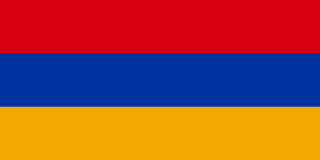

Employer of Record Guide in Poland
Poland's thriving tech ecosystem and skilled workforce make it an attractive destination for global expansion, but navigating local employment laws requires expertise. This comprehensive guide breaks down everything you need to know about hiring compliantly in Poland, from payroll requirements to employee benefits.
Capital City
Currency
Languages
Population size
Services available in this country:

Key stats and facts
Poland offers access to high-demand tech talent across major hubs like Warsaw and Kraków, with competitive costs and a business-friendly environment. Understanding the local market dynamics—from currency considerations to in-demand skills—sets the foundation for successful hiring decisions.
Major economic hubs
Skills in demand
Currency
Language
GDP per Capita
Standard Tax Rate
Your EOR guide in Poland
From minimum wage requirements to complex social security contributions, Polish employment law has specific nuances that can impact your hiring strategy. This detailed breakdown covers payroll cycles, tax obligations, leave policies, and compliance requirements to help you hire with confidence.
Minimum Wage
Poland's minimum wage is set nationally and adjusted annually. For 2025, the minimum wage is 4,666 PLN per month for full-time employees, which equals approximately 28.10 PLN per hour based on a standard 166-hour work month.
The minimum wage applies to all employees regardless of their employment contract type, with some exceptions for specific categories like apprentices or disabled workers who may receive adjusted rates under certain programmes.
Payroll Cycle
Polish employers typically follow monthly payroll cycles, with salaries paid by the 10th of the following month. This is the most common practice, though some companies may opt for bi-weekly payments in specific circumstances.
Payment must be made in Polish Złoty (PLN) unless the employee explicitly agrees to payment in foreign currency, which requires special documentation and compliance with foreign exchange regulations.
Individual Income Tax
Poland operates a progressive income tax system with the following brackets for 2025:
| Annual Income (PLN) | Tax Rate |
|---|---|
| Up to 120,000 | 12% |
| Above 120,000 | 32% |
Tax-Free Allowance: 30,000 PLN annually (2,500 PLN monthly)
Employees also pay a 1.25% health insurance contribution that partially reduces their income tax liability.
Tax Residency Criteria
Individuals are considered Polish tax residents if they:
- Have their centre of vital interests in Poland, or
- Stay in Poland for more than 183 days in a tax year
Tax residents pay Polish income tax on their worldwide income, while non-residents only pay tax on Polish-source income.
Employer Payroll Contributions
Polish employers must make several mandatory contributions to the Social Security Institution (ZUS) and other funds:
| Contribution Type | Employer Rate | Employee Rate | Total |
|---|---|---|---|
| Pension Insurance | 9.76% | 9.76% | 19.52% |
| Disability Insurance | 6.50% | 1.50% | 8.00% |
| Sickness Insurance | 0% | 2.45% | 2.45% |
| Accident Insurance | 0.40% - 3.60% | 0% | Variable |
| Labour Fund | 2.45% | 0% | 2.45% |
| Solidarity Fund | 0.10% | 0% | 0.10% |
| Total Employer Cost | ~19-25% | ~14% | ~33-39% |
Note: Accident insurance rates vary by industry risk classification. Some contributions have annual caps.
Working Hours
The standard working time in Poland is 8 hours per day and 40 hours per week, averaged over a reference period that cannot exceed 4 months.
Certain employee categories may be exempt from standard working time limits:
- Senior management positions
- Employees in creative or research roles
- Workers with autonomous work organisation
Daily Rest: Employees must have at least 11 consecutive hours of rest between working days.
Weekly Rest: Employees are entitled to at least 35 consecutive hours of rest per week, typically including Sunday.
Overtime Pay
Overtime compensation in Poland follows specific rules:
- First 2 hours daily: 150% of regular hourly rate
- Beyond 2 hours daily: 200% of regular hourly rate
- Sundays and holidays: 200% of regular hourly rate
Annual Overtime Limits:
- 150 hours per year in standard conditions
- 416 hours per year in exceptional circumstances with employee consent
Employees may agree to receive compensatory time off instead of overtime pay at equivalent rates.
Bonus Payments
While not legally mandated, many Polish employers provide:
- 13th Month Salary: Common year-end bonus
- Performance Bonuses: Based on individual or company performance
- Holiday Allowance: Additional payment before vacation periods
All bonuses are subject to income tax and social security contributions.
Full-Time vs. Part-Time
- Full-time: Standard 40-hour work week
- Part-time: Less than full-time hours with proportional rights and benefits
Part-time employees receive the same hourly wage and proportional leave entitlements as full-time workers.
Vacation Leave
Polish employees are entitled to paid annual leave based on their education and work experience:
| Qualification Level | Annual Leave Entitlement |
|---|---|
| Higher education or 10+ years experience | 26 working days |
| Other employees | 20 working days |
Accrual: Leave accrues monthly (1/12 of annual entitlement per month of work).
Scheduling: Employees may request specific dates, but employers have final approval based on operational needs.
Payout: Unused leave must be paid out upon termination at average salary rates.
Sick Leave
Polish sick leave is funded through the social security system (ZUS):
- First 33 days: 80% of average salary (paid by ZUS)
- Subsequent days: 100% of average salary (paid by ZUS)
- Employer Coverage: First day may be unpaid unless covered by company policy
Medical Certification: Required from the first day of absence. Employees must provide medical certificates (L4 forms) to qualify for benefits.
Maternity Leave
Poland provides comprehensive maternity and parental leave:
Maternity Leave: 20 weeks (paid at 100% of average salary)
- 6 weeks must be taken after birth
- Remaining weeks can be shared with partner
Additional Parental Leave: 32 weeks (paid at 60% of average salary)
- Can be shared between parents
- Must be used before child turns 6
Total Family Leave: Up to 52 weeks combined maternity and parental leave.
Parental Leave
Beyond maternity leave, Polish parents are entitled to:
- Parental Leave: 32 weeks at 60% salary (as mentioned above)
- Childcare Leave: Up to 3 years unpaid leave per child
- Father's Leave: 2 weeks paid leave for fathers
Bereavement Leave
Polish law provides 2 days of paid bereavement leave for the death of:
- Spouse
- Children
- Parents
- Siblings
Additional unpaid leave may be granted at employer discretion.
Personal & Family Leave
- Care Leave: 14 days annually for caring for sick family members
- Occasional Leave: 2 days annually for personal matters (wedding, moving, etc.)
- Force Majeure Leave: Unpaid leave for unexpected family emergencies
Summary
| Leave Type | Duration | Compensation | Funding Source |
|---|---|---|---|
| Annual Leave | 20-26 days | 100% salary | Employer |
| Sick Leave | As needed | 80-100% salary | ZUS |
| Maternity Leave | 20 weeks | 100% salary | ZUS |
| Parental Leave | 32 weeks | 60% salary | ZUS |
| Bereavement | 2 days | 100% salary | Employer |
| Care Leave | 14 days | 100% salary | Employer |
Termination Types
Termination by Notice:
- Most common form of termination
- Requires proper notice period
- No specific reason needed (except during protected periods)
Immediate Termination:
- Only for serious misconduct
- No notice period required
- Must be justified with documented evidence
Mutual Agreement:
- Both parties agree to end employment
- Can include negotiated terms
- No notice period required
Notice Period Requirements
Notice periods depend on the type of employment contract and length of service:
Indefinite Contracts:
| Length of Employment | Notice Period |
|---|---|
| Trial period | 3 days |
| Less than 6 months | 2 weeks |
| 6 months to 3 years | 1 month |
| More than 3 years | 3 months |
Fixed-term Contracts: Generally no notice required unless specified in contract.
Severance Pay
Severance pay is required in specific circumstances:
Collective Redundancies:
- 1 month's salary for employees with less than 10 years of service
- 2 months' salary for 10-20 years of service
- 3 months' salary for more than 20 years of service
Individual Redundancies: Severance may be required based on collective agreements or individual contracts.
Probationary Periods
- Maximum Duration: 3 months
- Notice Period: 3 days from either party
- Purpose: Allows both parties to assess job fit
- Limitations: Cannot be extended or repeated for the same position
Final Pay Requirements
Employers must provide final payment within 7 days of employment termination, including:
- Outstanding salary
- Unused vacation pay
- Any other contractual benefits
Termination Documents & Process
Required Documentation:
- Written termination notice
- Work certificate (świadectwo pracy)
- ZUS documentation for social security purposes
Protected Periods: Termination is restricted during:
- Sick leave
- Maternity/parental leave
- Military service
Anti-Discrimination & Retaliation Laws
Polish labour law prohibits termination based on:
- Gender, age, disability, race, religion
- Pregnancy or parental status
- Trade union membership
- Filing complaints or exercising legal rights
Violations can result in reinstatement orders and compensation awards.
National Public Holidays
Poland observes 13 national public holidays annually:
| Holiday | Date | Type |
|---|---|---|
| New Year's Day | January 1 | Fixed |
| Epiphany | January 6 | Fixed |
| Easter Sunday | Variable | Moveable |
| Easter Monday | Variable | Moveable |
| Labour Day | May 1 | Fixed |
| Constitution Day | May 3 | Fixed |
| Corpus Christi | Variable | Moveable |
| Assumption Day | August 15 | Fixed |
| All Saints' Day | November 1 | Fixed |
| Independence Day | November 11 | Fixed |
| Christmas Day | December 25 | Fixed |
| Boxing Day | December 26 | Fixed |
Holiday Pay Rules
Eligibility: All employees are entitled to paid time off on public holidays.
Payment: Employees receive their regular daily wage for each public holiday.
Weekend Holidays: When a holiday falls on a weekend, employees do not receive an additional day off unless specified in collective agreements.
Working on Public Holidays
If employees work on public holidays:
- They receive 200% of their regular hourly rate
- Plus an additional day off within the following 8 weeks
- Or additional payment equivalent to one day's wage
Required Documentation for Employment
Employment Contract: Must include:
- Job description and responsibilities
- Salary and benefits
- Working hours and location
- Notice periods
- Probationary period terms
Government Forms:
- Personal income tax declaration
- ZUS registration forms
- Work permit (for non-EU citizens)
Employee Documents:
- Identity document (passport/ID card)
- Social security number (PESEL)
- Bank account details for salary payments
- Educational certificates (if relevant)
Language Requirements
While Polish is the official language, employment contracts and workplace communication may be conducted in English in international companies, particularly in major cities like Warsaw, Krakow, and Gdansk.
Documentation: Key employment documents should be available in Polish to ensure legal compliance and employee understanding.
Background Checks & References
Background checks are permitted but must be:
- Relevant to the position
- Conducted with employee consent
- Compliant with GDPR requirements
Common Checks:
- Criminal background (for sensitive positions)
- Employment history verification
- Educational qualification verification
Data Protection & Privacy
Poland follows EU GDPR regulations for employee data protection:
- Consent: Required for data collection and processing
- Purpose Limitation: Data must be used only for stated purposes
- Data Minimisation: Collect only necessary information
- Retention: Data must be deleted when no longer needed
IP Assignment & Confidentiality
Intellectual Property: Work created during employment typically belongs to the employer, but this should be explicitly stated in contracts.
Confidentiality: Employees may be bound by confidentiality agreements covering:
- Trade secrets
- Client information
- Business strategies
- Technical knowledge
Probation Period Setup
Standard Practice: 3-month probationary period for new employees.
Terms: Should specify:
- Performance expectations
- Evaluation criteria
- Notice period (3 days)
- Conversion to permanent employment
Onboarding Timeline
| Step | Timeline |
|---|---|
| Job offer accepted | Day 0 |
| Employment contract signed | Day 1-3 |
| ZUS registration completed | Day 1-7 |
| Tax forms submitted | Day 1-7 |
| Bank account setup | Day 3-7 |
| Workplace orientation | Day 7-14 |
| Probation period begins | Day 1 |
What the EOR Handles
Borderless AI manages:
- Employment contract preparation
- ZUS registration and compliance
- Tax withholding and remittance
- Payroll processing
- Legal compliance monitoring
- Local language documentation
Worker Classification: Employee vs Contractor
Polish law strictly distinguishes between employees and independent contractors:
Employees (Umowa o pracę):
- Subject to Labour Code protections
- Entitled to social security benefits
- Work under employer supervision
- Receive regular salary with tax withholding
Contractors (Umowa zlecenie/Umowa o dzieło):
- Limited labour law protections
- Responsible for own tax obligations
- Work independently
- Invoice for services provided
Misclassification Risks: Incorrectly classifying employees as contractors can result in:
- Back payment of social security contributions
- Tax penalties
- Labour law violations
- Employee claims for benefits
Unionisation & Collective Agreements
Poland has a strong tradition of trade unions and collective bargaining:
Union Rights: Employees have the right to form and join trade unions.
Collective Agreements: May override standard labour law provisions in areas such as:
- Working time arrangements
- Additional leave entitlements
- Wage supplements
- Termination procedures
Consultation Requirements: Employers must consult with unions on matters affecting employees, including redundancies and workplace changes.
Cultural Norms & Workplace Expectations
Polish workplace culture emphasises:
- Punctuality: Arriving on time is highly valued
- Formality: Professional relationships tend to be more formal initially
- Direct Communication: Straightforward, honest communication is appreciated
- Work-Life Balance: Increasingly important, especially among younger workers
Religious Considerations: Poland is predominantly Catholic, and religious holidays are widely observed.
Remote Work Considerations
Remote work has become more common in Poland, particularly post-COVID:
Legal Framework: Remote work is regulated under Polish labour law with requirements for:
- Written agreements specifying remote work terms
- Employer provision of necessary equipment
- Health and safety compliance
- Working time monitoring
Equipment: Employers typically provide:
- Laptop and necessary software
- Internet connection allowance
- Ergonomic equipment for home office
Tax Implications: Remote work arrangements may affect tax obligations, particularly for employees working from different countries.
Built-in benefits packages for Poland
When the world is your competition, it pays to incentivize new hires and existing alike. Borderless AI benefits packages typically inlucde:

Medical Insurance

Dental Insurance

Retirement Contribution

Life Insurance

Vision Insurance
Explore other countries

Unlock global hiring potential
Simplify your payroll and hiring processes today.








